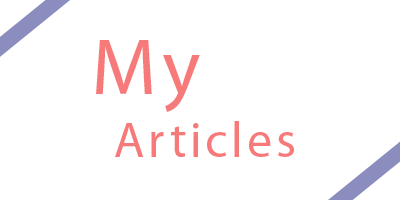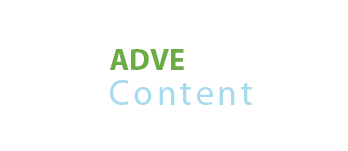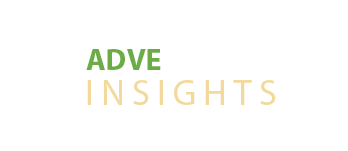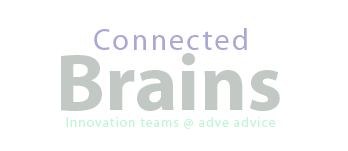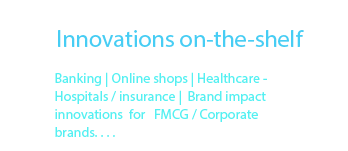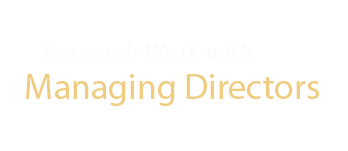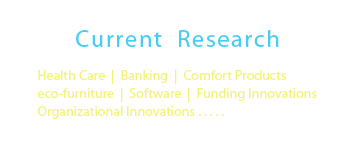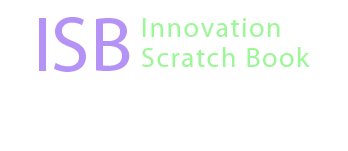The need and the tenets to repress ‘confidentiality-scare’
(this article is made with focus about mining public information from patient information in the mental healthcare domain)Summary
All disclosure-sensitive incidents / transactions comprise valuable public information too but the conventional approach to keeping the secrecy is observed at the cost of neglecting that value. And the neglect is largely due to the ever-conscious fear of the disquieting legal consequences of unintended breach by the thin probable chance. The article is made with focus on the need and ways to mine public information from patient information in the mental healthcare domain.
The effort to repress fear has been absent owing to deficient cognizance of the nature and extent of the value hidden in confidential patient information. But the fear largely prevails because of the conformist approach that keeps the fear unchallenged. The article reveals the incongruous situation, makes an abstract sense of the value and suggests methods to repress confidentiality-scare.
The article dissects the typical confidential information into components in explaining the need and approach to mining public information from patient information in developing knowledge resource for the public. The arguments in the article amplify the importance of reverse flow of new observations from the practice circles to academic circles for expansion of knowledge through research.
It is important that any method to mine public information from mental health cases ought to be convincing enough to encourage patients, beyond being just assuring, to seek help with no apprehensions - precisely by the process. The article stresses the need to develop secure information mining process and presents scope to build-in therapeutic value in the public content for the patients by being creative.
.........................................
Keeping private information confidential, more conscientiously personal private information, is very, very important but it is more important to know how to keep them undisclosed and much more important to know how not to misunderstand the practical sense inherent in the implicit legal rules about it.
Confidentiality-scare is real. It raises often serious doubts in work at companies and organizations, in providing professional personal services, in research and in applied research business projects. The ‘not-sure’ musings and invited as also uninvited opinions raise doubts only to be turned into a scare by the ‘beware’ legal advises. The cause of the scare seems to be rooted in the general usage of the word – confidentiality - to include all information components of the incident / transaction collectively as a single parcel. The critical point this article presents is that all disclosure-sensitive incidents / transactions comprise very valuable public information too besides knowledge challenging information, very sensitive personal private information and varyingly sensitive private information and unique to the transaction information. The unexplored truth is that public information in confidential incidents / transactions is in fact immensely vast and of critical value for the society but is hardly mined.
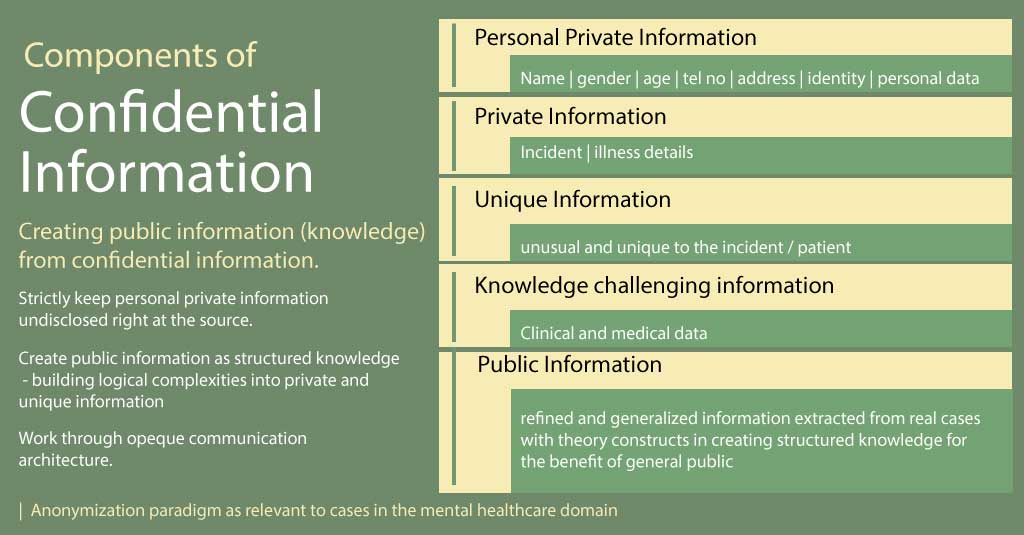 The potential value of public information in confidential incidents / transactions remain largely untapped owing to the confidentiality-scare and thus restrict knowledge dissemination and consultations among the members of professional service groups. Reverse flow of new observations from the practice circles to academic circles is critical for expansion of knowledge through research. Reverse flow of information happens across knowledge domains but with varying degree of inertia and deficits. Typically, social systems with slow and incomplete reverse flow of information restrict knowledge research thereby causing deficiencies in meeting the social needs it serves. Such social systems suffer from perpetually increasing issues with complexities. Good solutions arise from better understanding of the problems and they are better understood at the needs-end. That tells of the importance of freeing-up reverse information channels.
The potential value of public information in confidential incidents / transactions remain largely untapped owing to the confidentiality-scare and thus restrict knowledge dissemination and consultations among the members of professional service groups. Reverse flow of new observations from the practice circles to academic circles is critical for expansion of knowledge through research. Reverse flow of information happens across knowledge domains but with varying degree of inertia and deficits. Typically, social systems with slow and incomplete reverse flow of information restrict knowledge research thereby causing deficiencies in meeting the social needs it serves. Such social systems suffer from perpetually increasing issues with complexities. Good solutions arise from better understanding of the problems and they are better understood at the needs-end. That tells of the importance of freeing-up reverse information channels.Private information is money and being increasingly exploited in the progressing digital age.
Disclosed private information and unique information can cause, by the nature of the information, loss - of profit, wealth and opportunities to individuals and organizations and can also lead to fatalities to individuals. These are in the space of commercial transactions and social crime.
Disclosed personal private information can inflict nuisance, shame, defame, anxiety, rifts and the ill consequences of them for individuals. Abusing, misusing and using of personal private information is essentially of the nature of infringing on the fundamental rights of individuals to remain unharmed and untroubled and therefore considered as serious offence even if it happens by oversight, negligence or ignorance.
Private information is money - both good and evil. In business private information is safeguarded in explicit non-disclosure contracts and even secured with legal concepts such as ‘patent’. Exploitation of personal private information is largely evil and are appropriated with the intent to cheat. However, in the current digital age private information are mined for business interests in large-scale on the sly, by blatant giveaways and hacking notoriously to steal. The loss from such evil mining of personal information is huge and growing. The point that is made out here from the perspective of the unexploited potential of public information in vast sets of confidential information is that intent-to-cheat calls out the crime – not the use per se.
Potential value of public information in confidential information
Private confidential information in sensitive incidents and transactions across social systems do hold valuable but unrefined public information. Criminal cases of all kinds with the police, student behavior patterns at educational institutions, legal cases of intense human conflicts, patient disease conditions across ailment categories as also cases in other rather not as confidential social systems do contain crude information that can be converted into knowledge of immense value to people.
Private information is value of high potential if public information in them can be sorted, refined and structured into easy-to-understand knowledge resource for the general public. Such processed information serves as enriching resource more for the knowledgeable people in the society who in turn can make larger positive impact with the knowledge for the larger society in general. The value that is of public good in confidential incidents / transactions is directly in proportion to the peoples’ needs and the apparent and latent deficiencies of the citizen services provided by the respective social systems. More underprovided and more chaotic the delivery, greater is the value locked-in in the confidential incidents buried as such.
Since useful public knowledge can only be developed from multitudes of categorized cases that are generally considered individual and personal in nature the task is to diligently extract public information from them keeping personal private information unknown and to work creatively with private and unique information in them for developing refined knowledge resource.
Potential value of public information in patient information in the healthcare domain, particularly in mental healthcare space
Do hospitals do academic research on ailments and patient conditions? Do nations mandate their hospitals to do structured patient condition research in mining critical public information? While objective-specific cutting-edge research does happen at a few chosen hospitals on involvement by research organizations in developed and fast developing nations, research to mine critical public information from patient ailment data is vastly deficient. If data and understanding of that is critical in discovering new knowledge it would be very pertinent to expect bulk of subtle-yet-critical healthcare knowledge to reside in that massively voluminous data. How did an unexpected-to-vanish condition vanish? What did he eat? What did he do? What did we not understand? That is said simply for extrapolated thinking. Perhaps the need is not felt intensely yet in the collective conscience!
But in the mental healthcare space the bug-in-the-mind that triggers confidentiality-scare does keep lots of crude but all-fertile for turning out exceptionally useful knowledge, for doctors and for the public, unexploited. Three common and widely accepted knowledge about mental healthcare that size up the huge value buried in the innumerable mental health cases perceived as confidential in totality are; one, in most countries mental healthcare is largely underserved, two, it is a growing concern in all countries across the world and, three, that even in developed countries the stigma stuck to mental health conditions makes people hesitant to get help. But all that makes the value locked-in miniscule by the huge potential of the hidden unexploited information in possibly helping enrich mental resource for vast sets of people - in enabling them to live peaceful and enjoyable life.
Professional occupation is typically practice and largely independent:
And that is vastly true of the healthcare sector and in a much greater degree in the mental healthcare space. Post academic training, medical practice happens to be independent even in large hospitals which creates enlarging knowledge gaps in any social system that is apparently underserved. Unrestricted reverse flow of Knowledge from the practice corridors to academic and research circles and concurrent peer group consultations in sharpening service delivery is critical for enabling research towards developing new structured knowledge and novel treatment solutions.
Twin research ways:
New knowledge and novel solutions to problems arise in knowledge domains from twin research ways. One that seeks to research out solutions with objective problem hypothesis down to the practice zones and the other that seeks research for problems from the theoretical surmises up from the practice zones. While objective research in breaching state-of-the-art knowledge happens in a sustained manner research critical information from the practice space surface and disseminate low and slow having to cut through individual inertia and difficulties of defining the problem. And that keeps easy solutions hard to be brought about and keeps the system deficiencies, depriving the public of critical knowledge and the patients of certain quality and experience-enriched service delivery. The situation keeps the practice fraternity including the seniors deprived of solution-seeking critical information.
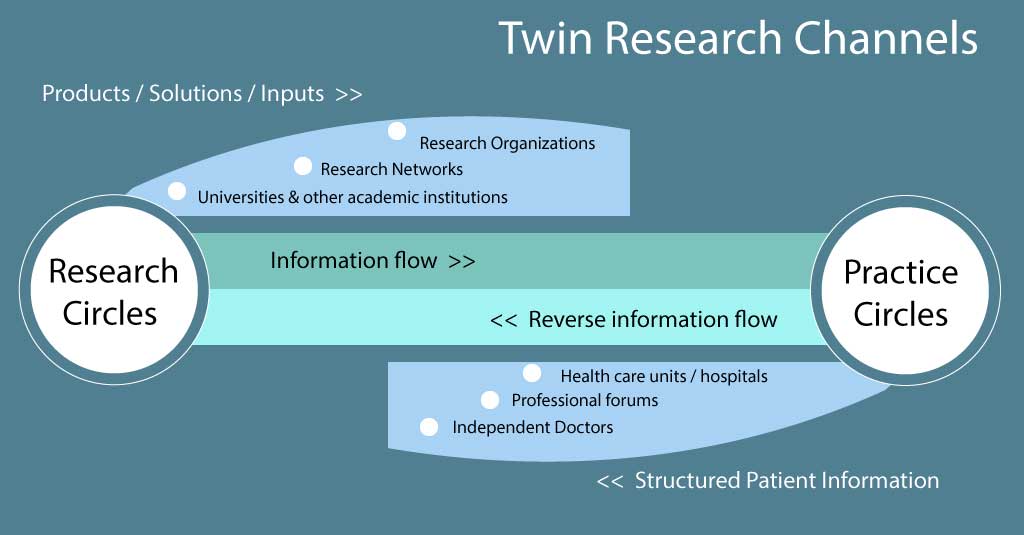 Professional services delivered by individuals independently to help-seeking individuals are subject to varying quality by the depth of wisdom and experience of the individual providing it. Negligence and deficient service have always been an issue of serious contention and dispute, more intense and of greater negative consequences in the healthcare sector.
Professional services delivered by individuals independently to help-seeking individuals are subject to varying quality by the depth of wisdom and experience of the individual providing it. Negligence and deficient service have always been an issue of serious contention and dispute, more intense and of greater negative consequences in the healthcare sector.Case presentations with arguably uneasy patient consent: Professional peer group consultations, presentations and deliberations happen to be most critical in the healthcare space in abridging knowledge gaps, prompting research and most importantly in enabling development of ingenious novel solutions. More true of mental health ailments, the practice of peer group consultations draws only distinctly challenging cases leaving hundreds of thousands of diverse cases ignored - being unmindful of the extractable insightful knowledge on the conditions and in the mental health care space - on the mind processes in them.
While it is important that strange and complex ailment cases are ideally discussed with factual case information withholding just the personal identity, the concern about ‘secrecy keeping’ prevails in general on all patient-centric ailment research and consultations by the belief of patient consent as necessary safeguard, on the fear of possible contentions. Patient consent happens easy with rare medical conditions but to seek consent to discuss / publish cases diverse by unique information can turn out to be too intrusive and hurting even with a patient all willing to share. Worse, should any sense of gratitude or obligation make them agree.
Confidentiality-scare is real: A google-search on patient confidentiality would ignite confidentiality-scare – with acute intensity if the interests are in the mental health domain. The stipulations of jail terms, practice license revocation and damage money make professionals let go of the efforts however good and worthy may it be to the people in causing healthcare awareness or contributing towards creating novel treatment solutions. Legal consultations would probably heighten the scare.
Ill-founded conviction that consent is an essential safeguard to ward of possible threats of contentions keeps many cases needing peer group consultations or worthy of submissions on research untried and only with the individual professional, primarily at a disservice to the patient but largely as a restrictive syndrome at multiple sources effectively blocking chances for expanding domain knowledge for the larger good of people.
It ought to be conscious and programed process, across all knowledge domains, to keep reinforcing and enhancing with research, state-of-the-art understanding in the academics by the experience from the professional service delivery points and that argument is more important of the healthcare sector. An important observation, expressed with particular reference to the healthcare sector, is that; extent of dissemination of refined public information from the practice has not kept pace with the big surge in the ability of people to understand ailments and treatments. Unless the professional medical practice keeps the knowledge depth uniform to an acceptable level across the delivery width with efficient dissemination of knowledge among themselves from the practice, knowledgeable user segment is likely to feel the deficiency. In fact, in the disease prevention space refined knowledge structured fine is by itself product of absolute value.
Experience of experiences: Facilitating documentation of experience of experiences in useful formats is important in all knowledge domains. It is more important to do that in professional service domains, where service is provided at an individual level on one-to-one basis, since such services invariably happen to be severely short of demand in developing and underdeveloped countries. Such a situation also makes knowledge gaps wide and very detrimental. Chronicling distinct case features in healthcare / mental healthcare space help reinforce and reinvent knowledge frameworks, construct new ones, support applied research and to develop novel solutions.
Gripped by the legal rules: Confidentiality-scare is a syndrome wrought largely by certain lack of understanding of the legal rules in right perspective and context. The fear from the harshly sounding rules seem to have been turned into scare by policy statements of large and well-known organizations in the healthcare sector, world over, which merely restate the rules with resolute commitment. Large organizations in the forefront of healthcare delivery seem not quite conscious of the need - hence perhaps refrain from finding sound method to own public information in patient information.
However, the argument above, does in no measure belittle the need to keep private information in patient information absolutely secret, at all costs, with no compromise. Fundamental tenets, of not exposing the patient to harm and not to let any chance that the patient can be hurt, do reflect noble civil convictions that must be obeyed religiously. Explicit allowances in the legal rules that provide scope to disclose private and also personal private information is also based on same objectives of avoiding harm and avoiding hurting emotions of the patient and directly connected individuals.
At the heart of all jurisprudence is just the logic about telling an act – right or wrong – and that is weighed in by the purpose – good or evil. Scope to draw public information from patient information is squarely in the implicit allowance but without breaching explicit stipulations even by ignorance or negligence.
Repressing confidentiality-scare The approach and the methods to repress confidentiality-scare depends on the nature of the concern (scare), need for patient information (ailment condition details), and the manifestations of it all as a highly restrictive hurdle in team consultations, research projects and business ventures. The need to maintain confidentiality with information about patient’s ailments, concerns and conditions happens to be more critical – greater the sensitive nature of the ailment and therefore becomes extremely offensive and perceived as intrusive by mental health patients. The anxiety to keep secrecy, even of minor mental aberrations, is rather intense owing to the sense of self-disgust of patients - of their condition which is largely inflicted by the immature perceptions of people in the society about mental health ailments. That anxious feeling is dreadful with more severe conditions and those associated with relationship conflicts.
The approach therefore in mining public information from patient information is - to be rather categorical about it with greater emphasis on absolute confidentiality of personal private information and to demonstrate that in the process. Good communication of that approach would inculcate patient confidence to an impact of curbing hesitancy in mental health patients, in seeking help.
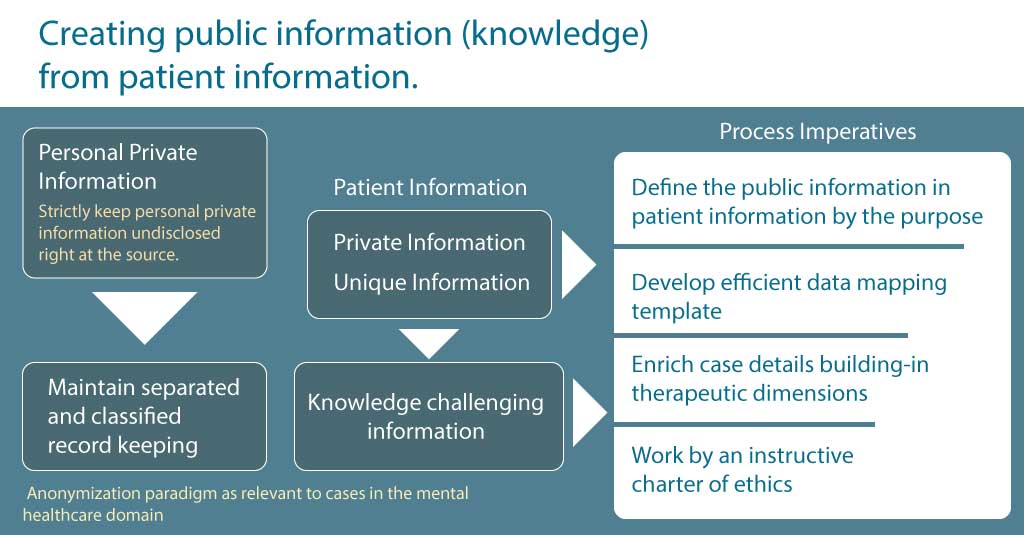 Strictly keep personal private information confidential right at the source
With mental health cases the fear of disclosure and the inhibition on the part of the patients are so acute that despite obvious assurance patients remain hesitant to discuss and even seek professional help. Therefore, it is very important that any method to mine public information from mental health cases ought to be convincing enough to encourage patients, beyond being just assuring, to seek help with no apprehensions - precisely by the process which keeps their personal identity information confidential right at the source and unwaveringly believed as such.
Strictly keep personal private information confidential right at the source
With mental health cases the fear of disclosure and the inhibition on the part of the patients are so acute that despite obvious assurance patients remain hesitant to discuss and even seek professional help. Therefore, it is very important that any method to mine public information from mental health cases ought to be convincing enough to encourage patients, beyond being just assuring, to seek help with no apprehensions - precisely by the process which keeps their personal identity information confidential right at the source and unwaveringly believed as such.Personal identity information such as; name, names of relatives associated with the condition, location addresses, contact details etc. need not be and should not be part of any discussion about ailment condition including within the medical team on treatment complexities. In large hospitals where record keeping is part of the protocol the task is about information keeping and sharing methods and rules and not about burying it altogether. On issues of private information even negligence at any level can hardly be excused, hence the need to get the process of the work with the information right. Hospitals and independent consultants who keep ailment records and private information of their patients without appropriately classified and separated expose their patients to the risk of disclosure however slight the chance and extent of the damage may be. Hospitals and independent consultants who do not keep record of ailment information altogether except name, contact nos. and fee, particularly of complex ailments, do not contribute towards better understanding of the ailments and for developing more effective solutions. Possibly they could be limiting the depth of the service they provide to their patients.
Define the public information in patient information by the purpose Refined public information is useful knowledge to the general public or to specific sets of people groups by age, gender, location, occupation etc. Refined public information developed from patient information across ailment categories is useful to educate, inculcate and equip public with knowledge on the causes, symptoms, vulnerabilities, prevention and on the care with good to critical social impact. Public information in patient information exists in crude form and to mine it effectively it is important to define the public information envisaged, well-articulated by the purpose.
The purpose also classifies the homogeneity range of ailment conditions for extracting diverse information.
Develop efficient data mapping templates: With purpose known it is easier to collect the required information on the ailments with all the relevant information plotted in a well-structured format.
Professional ailment information required for developing presentations at professional forums, for consultation among colleagues and for research purposes vary by the academic depth of the study and would include clinical data. Such studies hold potential to construct novel public information besides treatment solutions. The information and details required for developing public information are determined by the nature of the knowledge - the resource is expected to impart.
Ideally where records are maintained separating personal private information, which is not the practice, the very method keeps the personal information safeguarded. Such a document being without any personal information provides scope for fearless discussions for the noble purpose it is expected to serve. Anonymization of any true case or incident is considered effective when it does not identify with or relate to the person or persons part of the real cases.
Enrich case details building-in therapeutic dimensions Purpose and usage of patient ailment information determines the extent of the exposure of the information and the possible risk of breach of private information when handled without the due care or with vested intent. Strange and complex cases are worked by the practicing, academic and research circles with reach to smaller audience and sets of them. While the personal private information is well regarded by medical professionals by their ethics, chance of unintended exposure owing to collective record keeping and the willful disclosure happening on demand, whatever be the consideration, prevail. Such breach of trust, willful or by negligence, can be hardly pardonable – more so, greater the consequential hurt and damage caused to the person / persons identified.
Refined public information are by and large secondary in nature being drawn from research circles and are not traceable to real cases. When public information in patient information is mined for developing content for direct presentation to the public the exposure happens to be vast and unlimited and calls for all the due care. Movies, TV presentations, stories and articles etc. would need consent from the persons part of the real cases if they are largely and explicitly based on the true them.
Content developed for public knowledge from patient information can often hurt the persons who identify with the content owing to similarities in the narration even when personal private information are not disclosed. The breach in such cases is one of trust, of using patient information in public content and perhaps could be more unsettling for the patient who feels the breach distressing when the work involves money interests irrespective of noble intentions of public good. More dangerous consequence can be - of patients who relate their life situations in public content may, by the nature of their illness and their level of emotional threshold, get overwhelmed to turn themselves worse with their condition.
Disguising real cases with imagined events, locations and associations is an approach to develop content for public knowledge as fictitious narration and away from the true cases they are rooted in. But to do it in a way - effectively building-in therapeutic value - for those who would relate with the content, including ‘the’ patients, can only be considered highly noble. The task is about constructing the presentation with multiple additional details not just with the purpose to disguise true cases but to objectively send out healing signals to those who see themselves in such derived public content for good impact.
Work by an instructive charter of ethics With clarity on the purpose and research objectives it is important to develop and work with a clearly instructive ‘Charter of Ethics’ as a guiding document for all the people involved as also to present, to the public, the commitment and methods observed in keeping personal private information confidential. The document should also define process of extracting public information from the cases, communication and work protocol and most importantly larger public good envisioned for accomplishment.
8 December 2022
A developing study ...
Copyright: Adve Srinivasa Bhat, India.
